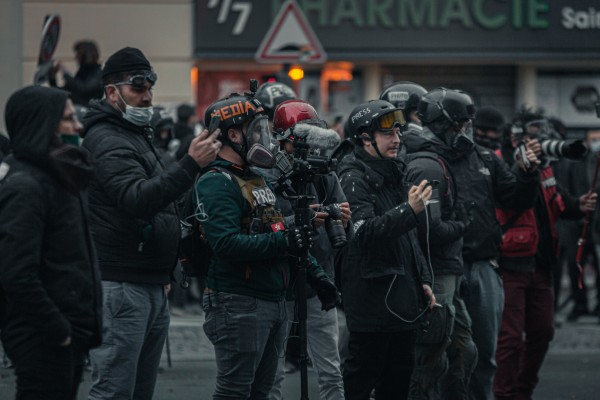A threatening handwritten letter addressed to four prominent Italian journalists was delivered in an envelope also containing four bullets to the headquarters of Italy’s public broadcaster, RAI, in Rome’s Via Teulada on 1 March. The envelope was addressed to journalists Michele Santoro, Marco Travaglio, Gianni Barbacetto and Peter Gomez.
RAI journalist and anchorman Michele Santoro, an open supporter of centre-left political ideas, has hosted the show “Annozero” since 2006. The current affairs programme has attracted the anger of representatives of the political centre-right coalition headed by Italian Prime Minister Silvio Berlusconi.
Investigative journalist Marco Travaglio has been a regular guest on “Annozero” and recently co-founded the independent newspaper Il Fatto Quotidiano. Peter Gomez is the editor of the webpage ilfattoquotidiano.it. And Gianni Barbacetto is a well known investigative journalist and the author of a series of books on politics and corruption in Italy, some in cooperation with Travaglio and Gomez.
Santoro’s office told the International Press Institute (IPI) by telephone yesterday that they were not aware of the content of the letter received by RAI, which was immediately handed over to the Italian law enforcement agency, Digos, charged with investigating sensitive cases relating to terrorism and organized crime. Investigators have reportedly said that the fact that the letter was not signed indicates that it was the work of a person acting alone, rather then as part of an organised group.
“We receive threatening letters all the time. Last year we received quite a few of them,” a member of Santoro’s staff told IPI.
“IPI urges the Italian authorities to do everything in their power to identify the person or persons responsible for sending the threatening letter,” said IPI Press Freedom Manager Anthony Mills. “Particularly in a political climate as polarised as that in Italy, it is vital that such acts of intimidation not be allowed to pass.”
Earlier this year, on 5 February, a threatening letter addressed to Santoro and Travaglio was sent to the offices of the daily Il Resto del Carlino in Bologna. The letter, handwritten in capital letters, stated: “Your beloved ones will pay for your malignity. Soon you will cry bitter tears.” It was signed “FUAN”, possibly in reference to a far right student movement founded in 1950, which eventually changed its name to “Azione Universitaria” (“University Action”) in 1996.
On 21 February, in Milan, explosive devices were found close to both the offices of Il Fatto Quotidiano and the editorial offices of RAI, Italian newspapers reported.
In a separate attack on 28 February near the city of Salerno, in the southern Italian province of Campania, journalist Fabio Cosma Colombo, with the daily Metropolis, was beaten unconscious. The journalist was collecting information about the death of a young man, later declared as a suicide, when he was attacked in the presence of policemen, who did not intervene, according to the Italian NGO Ossigeno per l’Informazione.
Ossigeno, a joint project of the Italian Federation of Journalists (FNSI) and the Order of Journalists (OdG) reported that journalists working in the Salerno area have said that “intimidation and threats are common ingredients of their daily work.” Cosma Colombo, who is currently in hospital, said that such attacks are “normal” in his area. “It becomes ever more difficult to tell the facts,” the journalist said.
IPI Press Freedom Manager Mills said: “The Italian authorities must investigate this assault and bring those responsible to justice. We are especially concerned about the allegation that the assault occurred in front of police officers who failed to intervene.”


